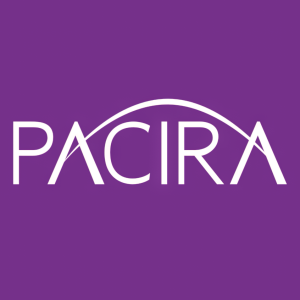Pacira BioSciences Unveils Three-Year Clinical Data Following a Single Local Administration of Investigational Gene Therapy, PCRX-201, in Patients with Moderate-to-Severe Osteoarthritis of the Knee
Rhea-AI Summary
Positive
- PCRX-201 demonstrated sustained clinical efficacy for up to three years with significant improvements in pain (51-53% reduction), stiffness (38-76% reduction), and function
- No serious treatment-related adverse events were reported, indicating strong safety profile
- Received prestigious FDA RMAT and EMA ATMP designations, potentially expediting development and review process
- Lower doses showed effectiveness, supporting cost-efficient treatment potential
- Phase 2 trials are already underway based on promising Phase 1 results
Negative
- Treatment-related joint effusions (swelling) occurred in 36% of pretreated patients and 61% of non-pretreated patients
- Median resolution time of 33 days for joint effusions in the pretreated group indicates temporary post-treatment complications
News Market Reaction
On the day this news was published, PCRX declined 2.13%, reflecting a moderate negative market reaction.
Data tracked by StockTitan Argus on the day of publication.
-- PCRX-201 demonstrated sustained clinical efficacy with improvements in pain, stiffness, and function for up to three years –
BRISBANE, Calif., June 11, 2025 (GLOBE NEWSWIRE) -- Pacira BioSciences, Inc. (NASDAQ: PCRX), the industry leader in the delivery of innovative, non-opioid pain therapies to transform the lives of patients, today announced new long-term follow-up data from its Phase 1 clinical trial evaluating PCRX-201 (enekinragene inzadenovec), a novel gene therapy candidate for osteoarthritis of the knee. Results show that a single intra-articular injection of PCRX-201 was well tolerated and produced sustained improvements in pain, stiffness, and function through 156 weeks in patients with moderate-to-severe osteoarthritis of the knee.
The study findings will be presented during a poster session at the 2025 European Alliance of Associations for Rheumatology (EULAR) Congress in Barcelona, Spain, on Wednesday, June 11, from 3:30 to 4:30 PM CET.
“The three-year data from this trial underscore the potential of PCRX-201 to meaningfully change the treatment paradigm for patients living with osteoarthritis of the knee,” said Philip G. Conaghan, Professor of Musculoskeletal Medicine at the University of Leeds and lead author on the study. “Current osteoarthritis treatments target its symptoms and are limited to three to six months of pain relief. With PCRX-201, we are targeting chronic inflammation at the cellular level to address a root cause of osteoarthritis. Providing three or more years of improvements in pain and function while potentially modifying the disease with a single intraarticular injection would be transformative for patients, physicians, and the healthcare system.”
PCRX-201 features an innovative design based on the company’s proprietary high-capacity adenovirus, or HCAd, gene therapy vector platform. It is injected locally into the knee joint to boost cellular production of interleukin-1 receptor antagonist (IL-1Ra), and block interleukin-1 pathway activation to improve chronic inflammation, pain, and function. PCRX-201’s unique disease-modifying design also features an inducible promoter to mimic the body’s natural response to inflammation by “turning up” the expression of IL-1Ra when inflammation is present in the joint and turning down expression once inflammation is quelled.
Study Details
The open-label, Phase 1 trial investigated the safety and efficacy of PCRX-201 administered by ultrasound-guided intra-articular injection in 72 patients aged 30 to 80 who remained in the trial for 156 weeks. Participants were divided into two cohorts. The first cohort (N=36) was administered one injection of PCRX-201 at a low, middle or high dosage. The second cohort (N=36) received concurrent pretreatment with an intra-articular corticosteroid (methylprednisolone 40 mg) to improve tolerability and gene transfer. Knee pain, stiffness and function were assessed at 156 weeks using the Western Ontario and McMaster Universities Osteoarthritis Index pain score (WOMAC-A), the stiffness score (WOMAC-B), and the Knee Injury Osteoarthritis Outcome Score (KOOS), respectively.
Key Findings:
- A single injection of PCRX-201 at any dose level had an acceptable safety profile and was not associated with any serious treatment-related adverse events.
- Patients experienced sustained, clinically meaningful reductions in pain and stiffness and improvements in function for three years.
- Least squares mean (LSM) improvements from baseline in the corticosteroid-pretreated cohort across all PCRX-201 doses included:
- 51–
53% reduction in WOMAC-A pain scores - 38–
76% reduction in WOMAC-B stiffness scores - 26–28-point improvements in KOOS daily living function scores
- 51–
- The findings suggest lower doses of PCRX-201 may be effective and support ongoing investigation in Phase 2 studies.
No serious treatment-emergent AEs related to the treatment or procedure were reported regardless of steroid pretreatment or dose level administered. Treatment-related joint effusions (swelling) were the most common AE, occurring in
“PCRX-201 continues to show excellent results as a unique disease-modifying gene therapy for osteoarthritis, with the potential to transform how we manage this often-debilitating condition affecting millions of Americans,” said Frank D. Lee, chief executive officer of Pacira BioSciences. “The three-year durability that we’ve seen so far continues to reinforce the importance of advancing PCRX-201 and potentially delivering innovative solutions to meet the longstanding unmet needs of patients living with osteoarthritis of the knee.”
In March 2024, PCRX-201 became the first-ever gene therapy product candidate in osteoarthritis to receive Regenerative Medicine Advanced Therapy (RMAT) designation from the U.S. Food and Drug Administration (FDA).
RMAT designation provides the benefits of intensive FDA guidance on efficient drug development, including the ability for early interactions with the FDA to discuss surrogate or intermediate endpoints, potential ways to support accelerated approval and satisfy post-approval requirements, potential priority review of the Biologics License Application (BLA), and other opportunities to expedite development and review. PCRX-201 was also granted Advanced Therapy Medicinal Products (ATMP) designation by the European Medicines Agency in May 2023.
Given the promising Phase 1 results, dosing is underway in a Phase 2 study of PCRX-201 (the ASCEND study) for the treatment of osteoarthritis of the knee.
About PCRX-201 (enekinragene inzadenovec)
PCRX-201 (enekinragene inzadenovec) features an innovative design based on the company’s proprietary high-capacity adenovirus vector platform. It is currently being studied in the fundamental, underlying chronic inflammatory processes that contribute to “wear and tear” over time in osteoarthritis of the knee, a condition that affects more than 14 million individuals in the U.S. today.
In November 2024, Pacira reported promising data from a large Phase 1 study in which PCRX-201 provided sustained improvements in knee pain, stiffness, and function through two years following local administration, with a well-tolerated safety profile. PCRX-201 has received Regenerative Medicine Advanced Therapy (RMAT) designation from the U.S. Food and Drug Administration and Advanced Therapy Medicinal Products (ATMP) designation from the European Medicines Agency. PCRX-201 is the first gene therapy to achieve these clinical results and earn these regulatory designations in osteoarthritis of the knee – a testament to its promise and potential.
About Pacira
Pacira delivers innovative, non-opioid pain therapies to transform the lives of patients. Pacira has three commercial-stage non-opioid treatments: EXPAREL® (bupivacaine liposome injectable suspension), a long-acting local analgesic currently approved for infiltration, fascial plane block, and as an interscalene brachial plexus nerve block, an adductor canal nerve block, and a sciatic nerve block in the popliteal fossa for postsurgical pain management; ZILRETTA® (triamcinolone acetonide extended-release injectable suspension), an extended-release, intra-articular injection indicated for the management of osteoarthritis knee pain; and iovera®º, a novel, handheld device for delivering immediate, long-acting, drug-free pain control using precise, controlled doses of cold temperature to a targeted nerve. The Company is also advancing the development of PCRX-201 (enekinragene inzadenovec), a novel, locally administered gene therapy with the potential to treat large prevalent diseases like osteoarthritis. To learn more about Pacira, visit www.pacira.com.
Forward-Looking Statements
Any statements in this press release about Pacira’s future expectations, plans, trends, outlook, projections and prospects, and other statements containing the words “believes,” “anticipates,” “plans,” “estimates,” “expects,” “intends,” “may,” “will,” “would,” “could,” “can” and similar expressions, constitute forward-looking statements within the meaning of Section 21E of the Securities Exchange Act of 1934, as amended (the “Exchange Act”), and the Private Securities Litigation Reform Act of 1995, including, without limitation, statements related to: the settlement described herein, ‘5x30’, our growth and business strategy; our future outlook, our intellectual property and patent terms, our growth and future operating results and trends, our strategy, plans, objectives, expectations (financial or otherwise) and intentions, future financial results and growth potential, including our plans with respect to the repayment of our indebtedness, anticipated product portfolio, development programs, development of products, strategic alliances and other statements that are not historical facts. For this purpose, any statement that is not a statement of historical fact should be considered a forward-looking statement. We cannot assure you that our estimates, assumptions and expectations will prove to have been correct. Actual results may differ materially from those indicated by such forward-looking statements as a result of various important factors, including risks relating to, among others: the failure to realize the anticipated benefits and synergies from the acquisition of GQ Bio Therapeutics GmbH; risks associated with acquisitions, such as the risk that the acquired businesses will not be integrated successfully, that such integration may be more difficult, time-consuming or costly than expected or that the expected benefits of the transaction will not occur; our manufacturing and supply chain, global and U.S. economic conditions (including inflation and rising interest rates), and our business, including our revenues, financial condition, cash flow and results of operations; the success of our sales and manufacturing efforts in support of the commercialization of EXPAREL, ZILRETTA and iovera°; the rate and degree of market acceptance of EXPAREL, ZILRETTA and iovera°; the size and growth of the potential markets for EXPAREL, ZILRETTA and iovera° and our ability to serve those markets; our plans to expand the use of EXPAREL, ZILRETTA and iovera° to additional indications and opportunities, and the timing and success of any related clinical trials for EXPAREL, ZILRETTA and iovera°; the commercial success of EXPAREL, ZILRETTA and iovera°; the related timing and success of U.S. Food and Drug Administration supplemental New Drug Applications and premarket notification 510(k)s; the related timing and success of European Medicines Agency Marketing Authorization Applications; our plans to evaluate, develop and pursue additional product candidates utilizing our proprietary multivesicular liposome (“pMVL”) drug delivery technology; the approval of the commercialization of our products in other jurisdictions; clinical trials in support of an existing or potential pMVL-based product; our commercialization and marketing capabilities; our ability to successfully complete capital projects; the outcome of any litigation; the recoverability of our deferred tax assets; assumptions associated with contingent consideration payments; assumptions used for estimated future cash flows associated with determining the fair value of the Company; the anticipated funding or benefits of our share repurchase program; and factors discussed in the “Risk Factors” of our most recent Annual Report on Form 10-K and in other filings that we periodically make with the Securities and Exchange Commission (the “SEC”). In addition, the forward-looking statements included in this press release represent our views as of the date of this press release. Important factors could cause actual results to differ materially from those indicated or implied by forward-looking statements, and as such we anticipate that subsequent events and developments will cause our views to change. Except as required by applicable law, we undertake no intention or obligation to update or revise any forward-looking statements, whether as a result of new information, future events or otherwise, and readers should not rely on these forward-looking statements as representing our views as of any date subsequent to the date of this press release.
These forward-looking statements involve known and unknown risks, uncertainties and other factors that may cause our actual results, levels of activity, performance or achievements to differ materially from those expressed or implied by these statements. These factors include the matters discussed and referenced in the “Risk Factors” of our most recent Annual Report on Form 10-K and in other filings that we periodically make with the SEC.

Investor Contact: Susan Mesco, (973) 451-4030 susan.mesco@pacira.com Media Contact: Sara Marino, (973) 370-5430 sara.marino@pacira.com







